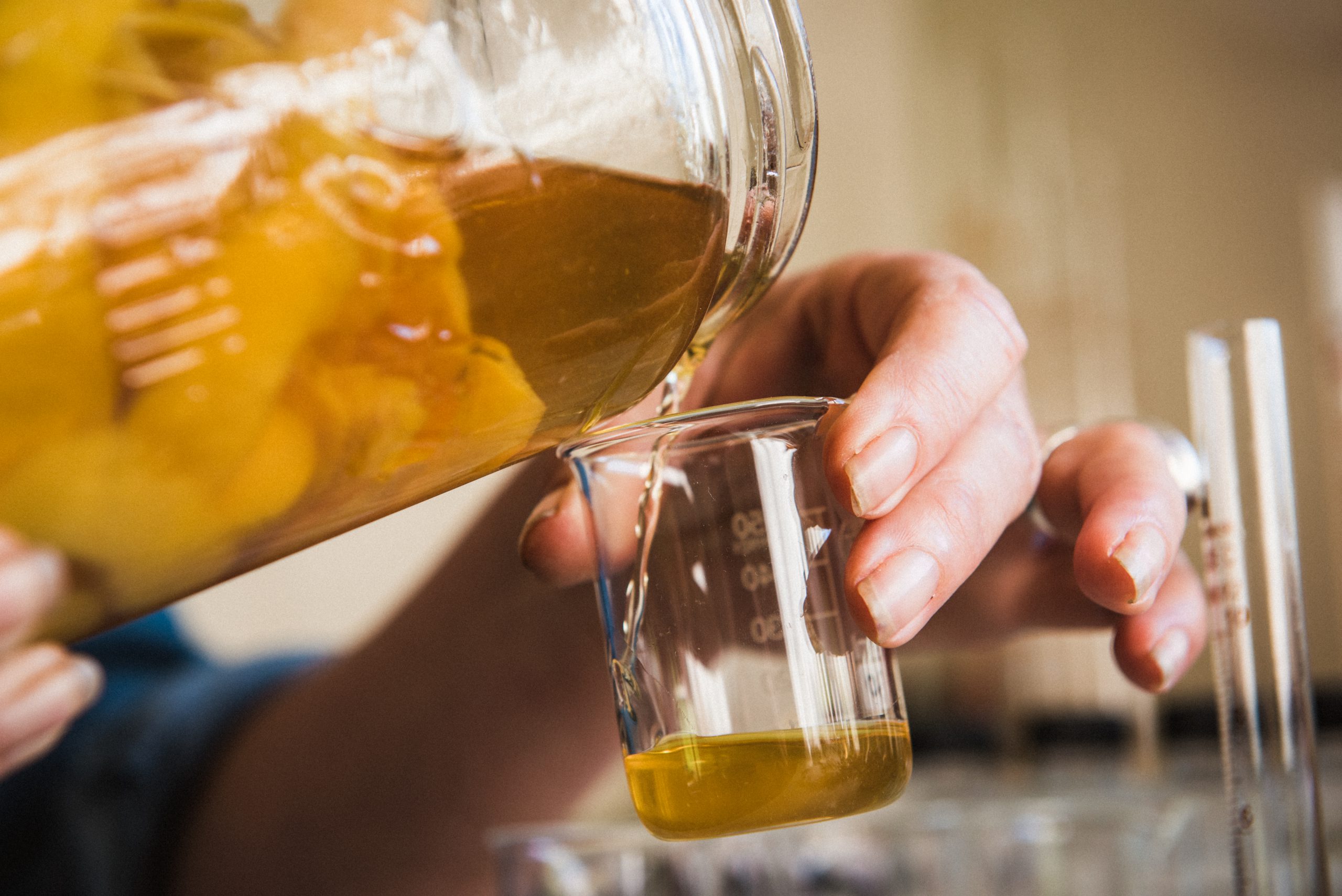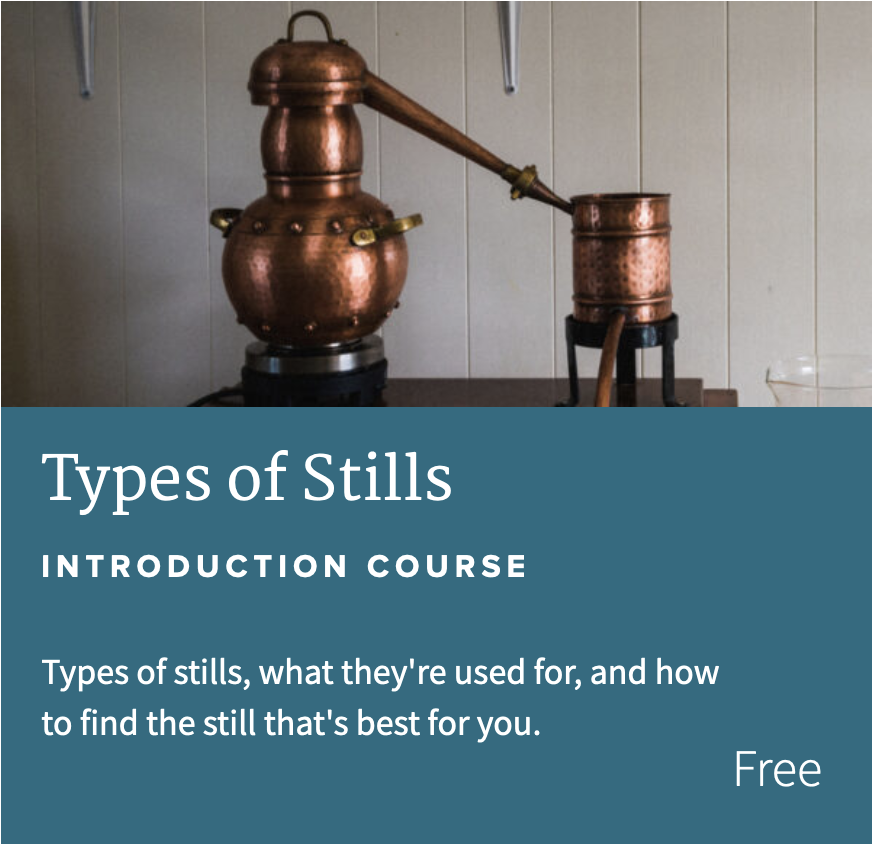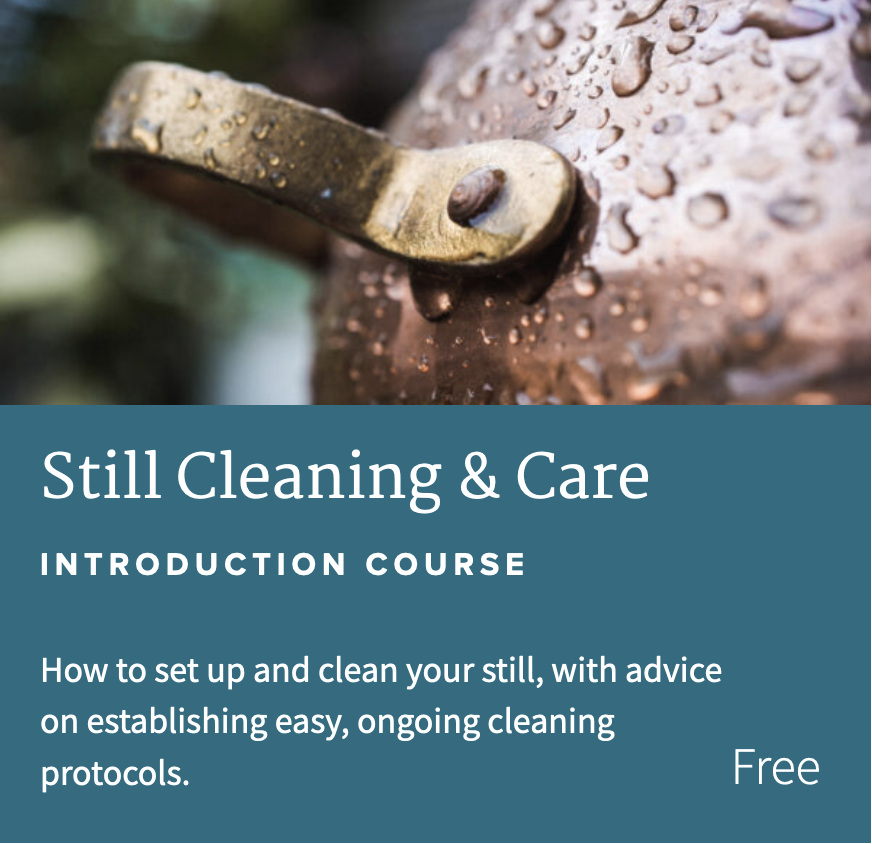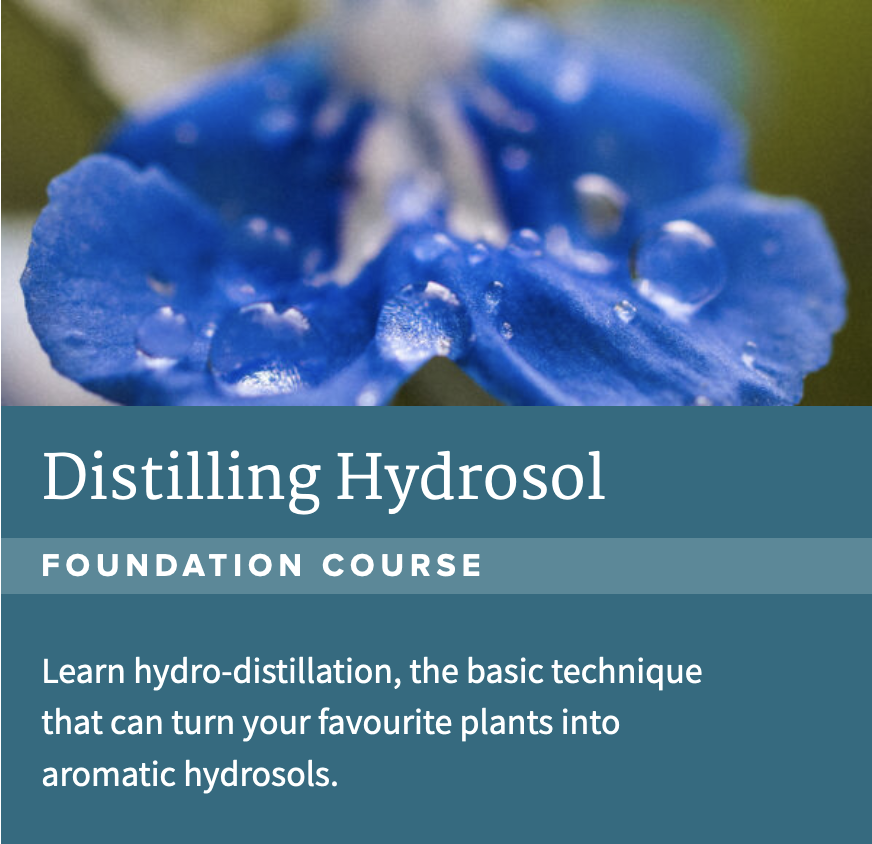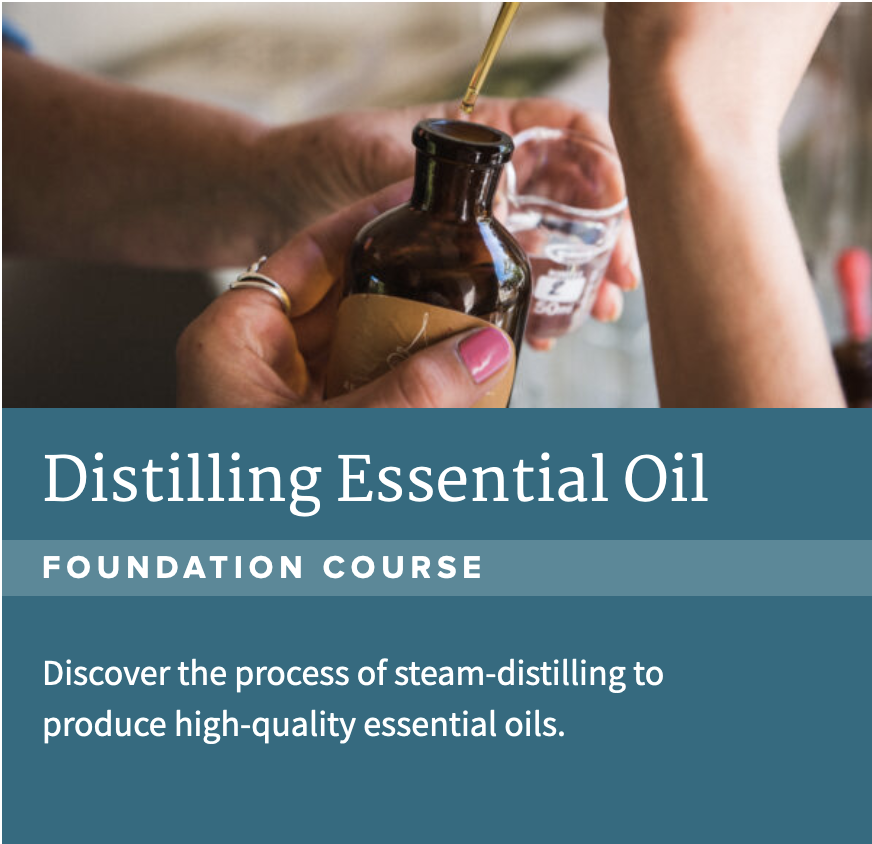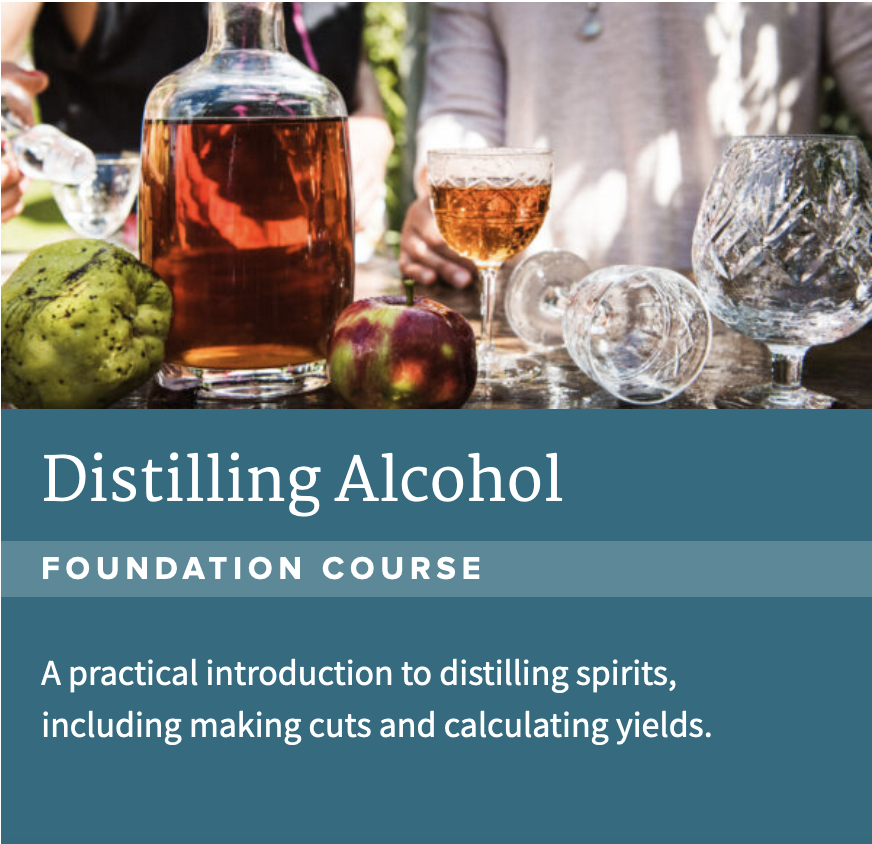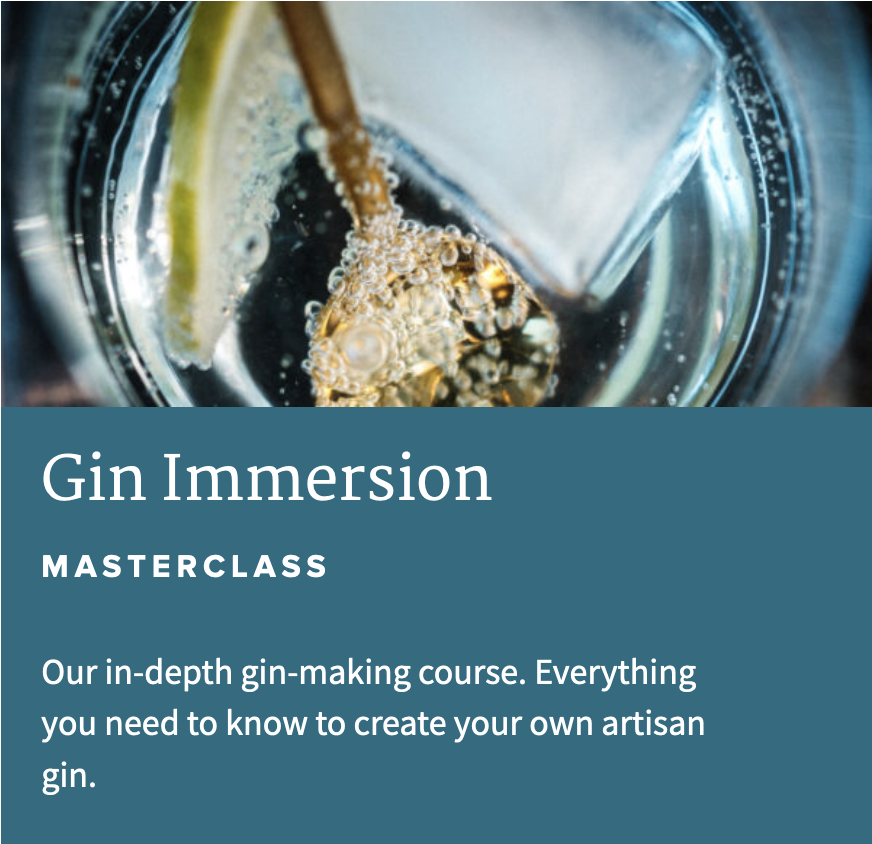
The mechanics of scentuality
Distillation is an evolving practice that showcases a very special meeting between science and plants. The Alembics team are committed to fostering a respectful and sustainable relationship with the natural environment and sharing our knowledge with you. Our most popular workshops are now online at The Alembics Lab, alongside a wealth of botanical knowledge and a selection of free video resources to get you started in distillation.
Learn With Us in The Alembics Lab
We’ll show you what it’s all about…
Distillation is a process of separation by evaporation and condensation. The term is derived from the latin word destillare meaning to drip or trickle down. The simplest way to visualise this is by thinking about the way steam settles into drops of water when it meets a cold surface
Getting Started
We’ve specially designed these short videos to help you choose a still and get set up and ready to go. We have made these free to everyone—all you need to do is create a profile on The Alembics Lab site with your email address, and you can start watching straight away. (You will never be asked to enter credit card details for free courses).
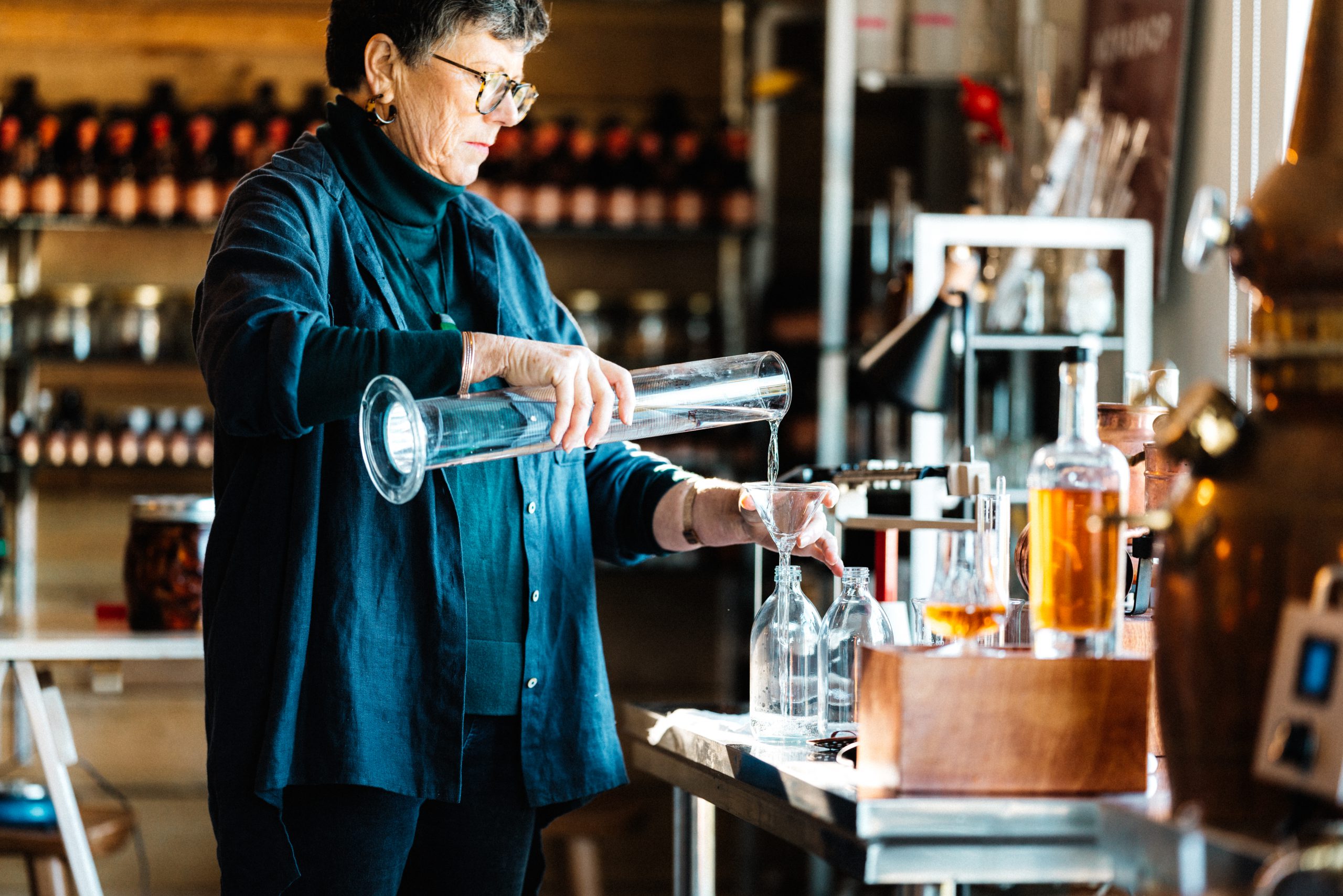
Choosing Your Still
Watch our free introductory video on Types of Stills. Find out which are the best stills for hydrosol, essential oil and alcohol production, and which stills will serve multiple purposes.
‘Which still should I use?’ is a question we’re asked all the time. In this video, we showcase the different types of stills we work with, and outline their specific uses. We also explain what to consider when starting out, and how to choose the best still to suit your purpose.
How To Take Care Of Your Still
Watch our free introductory course in Still Cleaning & Care to find out what to do before starting your first distillation, and how to clean your still in-between distillations.
This short video will help you assemble your still, set up your workspace and give it an initial clean (all Alembics still purchases come with a link to this video to help you get set up). After you unpack your still it’s important to carry out a rye flour clean to avoid contamination of the distillate. We’ll walk you through this, and discuss ongoing cleaning protocols, and how to make sure your still is clean and sanitary before each new distillation.
Why Copper?
Copper has played a significant part in the history of mankind. Humans have been utilising copper for thousands of years.
Copper has twice the thermal conductivity of aluminium and nearly ten times that of stainless steel making it the ideal raw material for use with water and high heat. Scientific research suggests that copper is also highly antibacterial. Copper has antimicrobial properties that can inhibit waterborne microorganisms such as bacteria, viruses, algae—making it the material of choice for the removal of impurities and infectious parasites. Distillations using copper stills create finer, more pure products.
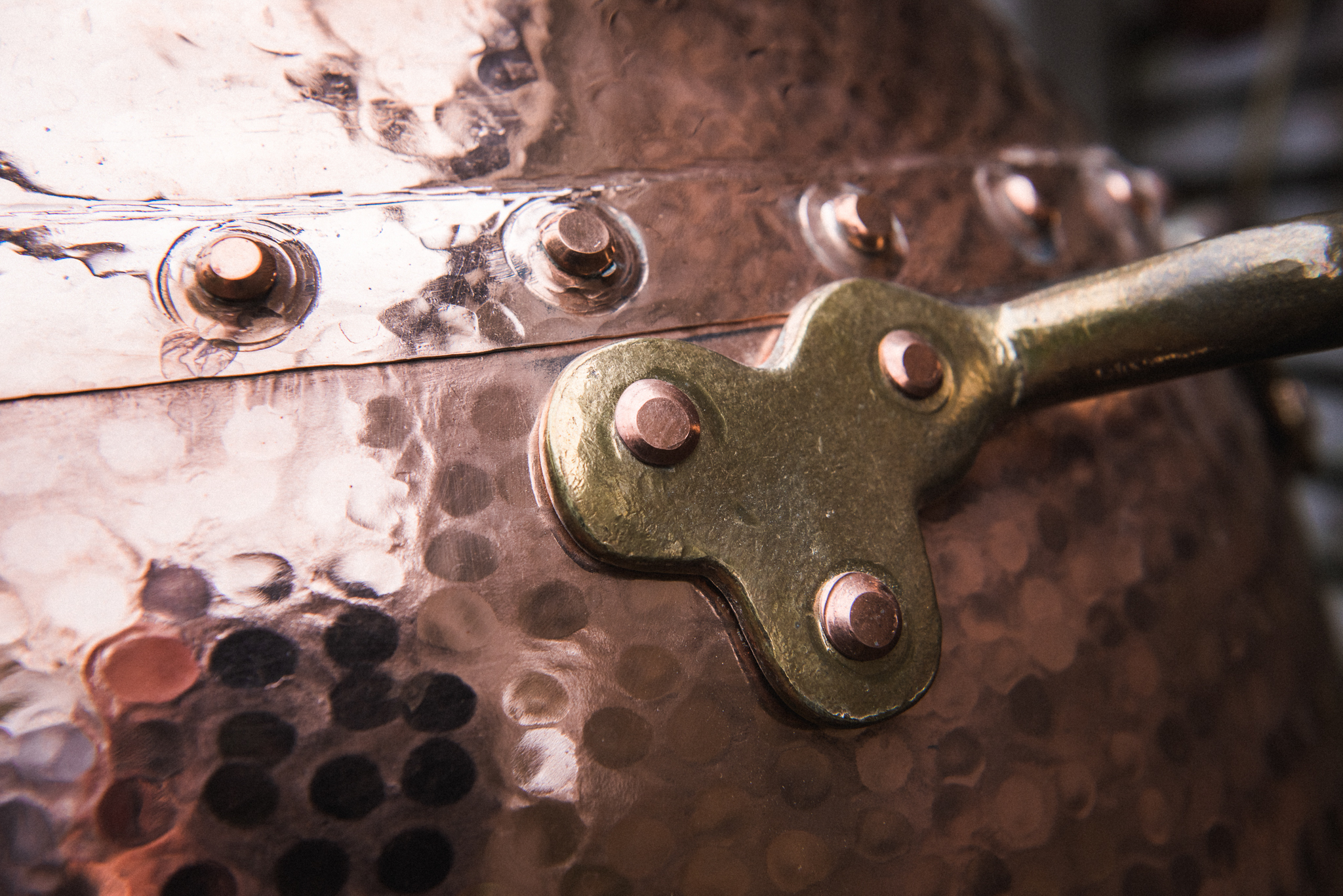
How To Distil Hydrosol
What is hydrosol?
Hydrosol is an aromatic botanical water. Think of it as the cellular water of plants. When hot water is poured over plants the heat of the water softens the cells releasing the plants volatile organic compounds into the water. The water soluble parts and tiny molecules of essential oil are caught in the vapours and travel through the still to the cooling condenser where they are converted into a liquid form.
The end result is a richly aromatic and intensely hydrating botanical water which can be sprayed all over the face and body. Botanical hydrosols are uplifting and mood shifting, ideal for many therapeutic and cosmetic purposes because the tiny aromatic molecules are easily absorbed through the skin and can travel throughout the body.
But hydrosol is not just restricted to use in personal cosmetics or natural therapies. Hydrosol can also be used across a range of innovative, new platforms. For example, Rosemary, Bay or Rosehip hydrosol can be used in gastronomy to add subtle and complex flavours. Hydrosol is also being used as a base for cocktails and non alcoholic beverages.
Come and visit us at The Alembics Lab and learn how to distil hydrosol in our foundation distillation courses.
How To Distil Essential Oil
What is essential oil?
Essential oils are the vital and pure aroma of plants and flowers. This precious aromatic can be gently captured and transformed into a liquid oil through the process of steam and hydro-distillation. Essential oils have been used throughout history in cosmetics, perfumery, massage and ritual.
Plants, flowers, barks and resins all emit fragrance because they contain volatile organic compounds (VOCs). Think of your favourite sweet smelling flowers—rose, orange blossom and jasmine—these plants have perfume because they contain a unique and dynamic combination of VOCs, which can vary from season to season, and change with the lifecycle of the plant. The true magic of the plant world.
You can learn how to distil essential oil with our Foundation Distillation courses—all now available online at The Alembics Lab.
How To Distil Spirits
What are spirits?
Spirits are alcoholic beverages made from a wash or ferment—this could be fermented fruits, grains or vegetables. Spirituous beverages derived from fruits are known as brandies, fruit wines, schnapps or eau de vie. Whisky and vodka are derived mainly from distilled fermented grains.
The process for preparing fruit wine or brandy begins by preparing a mash of ripe fruit to which yeast is added. The yeast feeds on the sugars in the fruit and produces alcohol as a by product. This is then distilled to concentrate alcohol and purify flavour.
To make whisky or vodka, grains are soaked in water to encourage the conversion of starches to sugar. This mixture or ‘wash’ is then drained and the liquid retained for fermentation. During fermentation yeast converts the sugars in the wash to alcohol. This is then distilled to concentrate alcohol and purify flavour.
Come and visit us at The Alembics Lab and learn how to distil Spirits in our foundation distillation courses.
How To Distil Gin
What makes a good gin?
Good botanical gin is delicious, delightfully aromatic, clean and uplifting! Technically speaking, however, gin is the result of a vapour distillation and the (sometimes) maceration of aromatic botanicals and a neutral spirit.
Artisan botanical blended gins are currently experiencing a huge surge in popularity and interest, perhaps due to the perception that they contain the healthy, invigorating properties of fresh botanicals.
Try it for yourself.
Remember that the quality of your gin will reflect the quality of your botanicals and aromatics. If they have been sitting on a shelf for months they will have lost much of their ‘zest’.
Some botanicals are difficult to source, so check out our specialised selection of quality aromatics if you need help.
Our popular Gin Immersion workshops is now online at The Alembics Lab.
Recipes
Over the years we have tried many recipes for liqueurs, aperitifs and cocktails. Here are some you may like to try.
